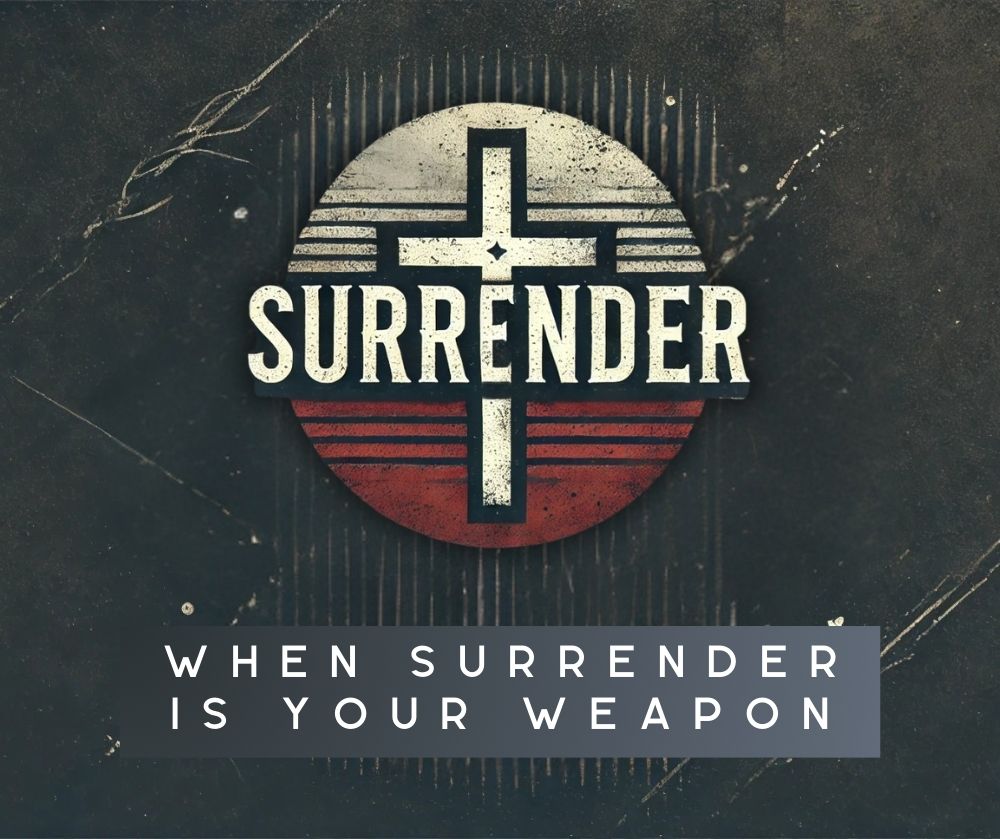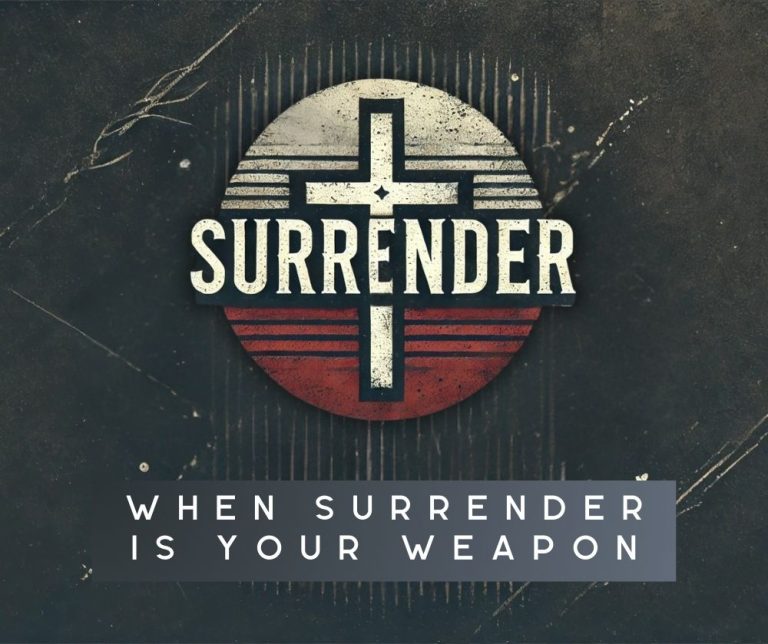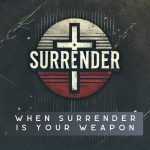We do not know what to do, but our eyes are on You.” Goal: Help readers understand how surrender to God becomes our most powerful battle strategy.
2 Chronicles 20:12
In military history, raising a white flag meant only one thing—defeat. Throughout centuries of warfare, this universal symbol has represented the moment when one side acknowledges they can fight no longer. We see soldiers in movies grudgingly raising white flags when their ammunition runs out, their defenses crumble, or their forces are overwhelmed. It’s always portrayed as the end—the moment when all hope is lost. Yet in God’s kingdom, something remarkable happens when we raise our white flag to Him.
King Jehoshaphat stood before his people with what seemed like a declaration of defeat. “We do not know what to do,” he proclaimed, words that no leader ever wants to speak publicly. Three powerful armies were advancing toward Jerusalem, and Judah’s military advisors had run out of strategies. The enemy forces were overwhelming, the situation impossible. But then came the powerful pivot that would change everything: “but our eyes are on You.”
Those six words transformed surrender into a battle cry. Jehoshaphat wasn’t just admitting defeat—he was activating a supernatural strategy. His confession of helplessness wasn’t weakness; it was weaponry. When he declared his complete dependence on God, he wasn’t retreating but advancing in a way his enemies never expected. This is spiritual warfare at its most counterintuitive and most powerful.
History tells us of a fascinating moment during the Battle of Waterloo. As Napoleon’s forces advanced, a young British drummer boy was captured. The French commander ordered him to beat a retreat call on his drum, thinking to demoralize the British troops. Instead, the boy played “Advance!” turning what was meant to be a signal of defeat into a rally cry. Similarly, when we surrender to God, what looks like retreat to the world becomes our greatest advance.
Our surrender to God terrifies the enemy in ways our strength never could. When we stop relying on our own resources, strategies, and abilities, we become vessels for God’s power. Satan trembles not at our capabilities but at our surrender because he knows that’s when God’s power is unleashed. A surrendered believer is far more dangerous in spiritual warfare than a self-reliant one.
Consider the profound moment when David faced Goliath. While others saw a shepherd boy dropping his defenses by refusing armor, God saw a warrior embracing divine strategy. David’s declaration, “I come against you in the name of the Lord Almighty,” was both a surrender to God’s method and a war cry that shook the enemy’s confidence. His victory came not through conventional warfare but through complete dependence on God.
In 1949, a small prayer group in the Hebrides Islands sparked an extraordinary revival. Two elderly sisters, Peggy and Christine Smith, one blind and one arthritis-ridden, surrendered their weakness to God in prayer. Their tiny cottage became a spiritual war room, and their prayers of helpless dependence became weapons that transformed their community. What began as two women admitting their inability became a movement that shook an entire region.
The power of surrender as warfare is beautifully captured in the spiritual discipline of fasting. When we voluntarily lay down our natural source of strength (food), we’re actually picking up spiritual weapons. Each hunger pang becomes a reminder of our dependence on God, and our physical weakness becomes a gateway to spiritual power. This deliberate embrace of weakness positions us for supernatural strength.
“Our greatest victories come disguised as defeats,” wrote Watchman Nee in his reflections on spiritual warfare. This profound truth echoes through Jehoshaphat’s story and into our own battles. When we raise our white flag to God, declaring “we do not know what to do,” we’re not conceding defeat—we’re unveiling our most powerful weapon: complete dependence on Him.
The authenticity of Jehoshaphat’s surrender is revealed in what comes next. After declaring their helplessness, they waited. There was no backup plan, no “just in case” strategy tucked away. They had burned their bridges to self-reliance and stood on the ground of total trust. This complete abandonment of self-effort became the platform for God’s miraculous intervention.
Fellow warriors in Christ, our white flag can become our war cry today. When we face impossible situations, overwhelming odds, or battles too big for us, we have a choice. We can exhaust ourselves trying to fight in our own strength, or we can raise our white flag to God and watch Him fight for us. Today, let’s make our declaration of dependence our declaration of war against the enemy.
Prayer
Heavenly Father, forgive us for trying to fight our battles in our own strength. We raise our white flag to You now, declaring like Jehoshaphat, “We do not know what to do, but our eyes are on You.” Thank You that our surrender to You becomes a weapon against the enemy. Teach us to make surrender our first strategy, not our last resort. In Jesus’ name, Amen.
Personal Reflection
- What battles are you still trying to fight in your own strength instead of surrendering to God?
- How has your view of surrender changed after seeing it as a weapon rather than a weakness?
Step of Faith
Today, I will identify one area where I’ve been struggling in my own strength and deliberately surrender it to God, making my declaration of dependence my war cry.






